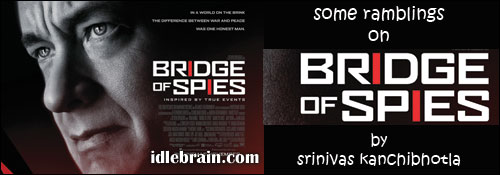
Due process is a bitch. There is no way around it in a civilized society. No matter how heinous the crime and the clamor for mob justice, the perpetrator is still entitled to his day in the court and given a chance to legally defend himself, is probably the greatest achievement in the judicial model devised by man (even trumping that other strong pillar of justice that calls for freeing even 100 criminals lest an innocent is punished). The idea(l) is exemplary from a theoretical standpoint (more when incidents surface of innocents sometimes caught in the crossfire of justice just for being at the wrong place at the wrong time). But practically speaking, defending a known criminal is perhaps the most thankless job there ever is in professional circuit, making the public defender office one of those undocumented hells that lawyers are condemned to once in a while owing to all the bad karma that their kind had accrued since the dawn of the justice system. Saddled with the legal obligation of representing the most reprehensible of crimes, the defender probably draws more ire for merely fulfilling his judicial responsibility of extending a legal helping hand to someone who deserves none, per the strictest definition of the word 'just'. And so the lawyers who fought for those perpetrators in the Nirbhaya case, or the ones who draw the short straw and therefore have to fight for the release of child abuse convicts, and the biggest of all, the unfortunate souls who have but no alternative but to find the gaping holes in the legal system and get their clients off on technicalities, are paradoxically the true heroes of the system, who have to curb their natural sense of fairness and take up the side of the accused much against the familial and societal pressures and then set about to try and win the judgment in favor of his client, all this amid abuse (verbal, psychological and sometimes even physical) the society heaps on them merely for doing their jobs. Like that other unnoticed, unheralded, utterly disregarded job in the modern society that is garbage collection, a public defender is the scavenger of the legal system without whom the judicial foundations would simply rot away and crumble towards its eventual doom.
'Bridge of Spies' is the real story of one such public defender weighted down by the responsibility of defending a Soviet spy at the height of Cold War in the 50's in a very war-paranoid America. This is a straightforward earnest story of a man's sense of proportion and negotiation put to the ultimate test by going against the same system that he staunchly believed in till that point in his life. There is a wonderful situation in the movie when even the judge presiding on the case becomes prejudiced along with the rest of civilian society and is bent on handing down capital punishment (which was the default sentencing meted out to betrayers of the state) to the spy completely disregarding the illegal and inadmissible evidence gathering techniques employed during his arrest and the defense counsel invokes the rules of natural justice which should be applicable to humanity as a whole without any geographical preferences, where a Soviet person is subjected to the same set of rules and rules compared to a native born. And all this, without the lawyer ever asking his client whether he indeed indulged in espionage against his host country to tilt the scales on a very grave issue, like nuclear secrets, in favor of his home country. This man, copping all the abuse, death threats, professional demotions, and finger pointing at his patriotism, deserves a sound round of applause for his personal and professional ethics holding steadfast to the idea that his duty was paramount to his personal convictions, his reading of the laws and understanding of justice that weren't clouded by visceral and knee jerk reactions to treasonous accusations, and somehow were calm, collected, measured, (and this is more important) absolutely right under the conditions. What is right and what is just are sometimes contradictory in the legal world. And siding with a known wrong, here was a man who married the right and the just knowing fully well the consequences of such audacity.
'Bridge of Spies' is a very very strange marriage of the Coen brothers scripting sensibilities and Spielberg's directorial choices. There are no sharp edges here nor any darkness in the material, not to mention, no quirk nor any slant from the normal. After David Lynch's 'A Straight Story', this is probably the 'straightest' story from the pens of fellow wicked geniuses. Righteousness rules supreme throughout the story with a clear sense of a moral center. And that is the strange part of the Coens' involvement here that for someone who always traded their wares on the kooky side of the street, this simple spook story is as far away from their skewed sensibilities as it could get. And same goes with Spielberg. This is certainly one of his 'lesser' movies, not by content, but by association. Regardless, while any other (named) director would have done an equally fine job with such a strong story, Spielberg's involvement with the project has certainly elevated what was merely a courtroom - consulate chambers negotiation drama into a good suspenseful Cold War piece. Probably that's what draws people in sometimes - the cold-hearted makers and the cynical viewers alike - the nobility of the effort in the face of some trying circumstances.
checkout http://kanchib.blogspot.com for Srinivas's Blog.
